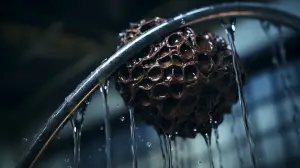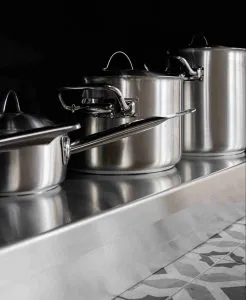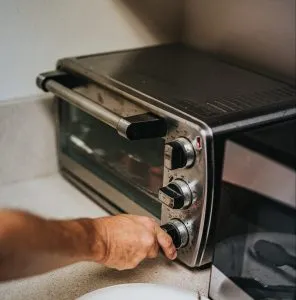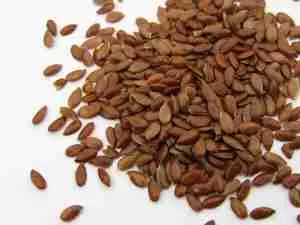Contents
ToggleFactors to Consider
To determine the correct drill bit size for a screw, you will need to consider the screw diameter, pitch, and type of material you will be drilling into. Let’s take a look at each of these factors in more detail.
Screw Diameter: The diameter of a screw is measured in millimeters and is an important factor in determining the right drill bit size. This measurement refers to the diameter of the screw shank, which is the part of the screw that fits into the drill bit. To measure the screw diameter, use a caliper or ruler to measure the distance across the screw shank, then divide by two to get the diameter.
Pitch: The pitch of a screw refers to the distance between the threads. This measurement is important because it helps determine the correct drill bit size for the screw. A screw with a finer pitch will require a smaller drill bit, while a screw with a coarser pitch will require a larger drill bit.
Material: The material you will be drilling into will also play a role in determining the correct drill bit size. Softer materials, such as wood, can be drilled with smaller drill bits, while harder materials, such as metal or masonry, will require larger drill bits.
A tapered bit: is a type of drill bit that has a gradually decreasing diameter from the shank to the tip. This design allows for easier starting and less pressure on the material being drilled, making it a popular choice for drilling into softer materials such as wood or plastic. The tapered shape also helps to guide the bit into the material and reduce the risk of slipping or wandering. Tapered bits are often used for countersinking, where a screw head needs to be recessed below the surface of the material.
A straight bit: also known as a twist bit, is a type of drill bit with a cylindrical shape and a uniform diameter from the shank to the tip. Unlike tapered bits, straight bits do not have a gradually decreasing diameter. They are typically used for drilling into harder materials such as metal or hardwood, as the uniform diameter allows for more efficient removal of material and less pressure on the material being drilled. Straight bits are also commonly used for general-purpose drilling and for creating straight, accurate holes.
Once you have considered these factors, you can refer to a drill bit size chart to find the correct size drill bit for your screw.
| Screw Size | Soft Wood | Soft Wood | Hard Wood | Hard Wood |
| Straight Bit | Tapered Bit | Straight Bit | Tapered Bit | |
| #2 | 1/16″ | 5/64″ | 1/16″ | 3/32″ |
| #3 | 1/16″ | 3/32″ | 5/64″ | 7/64″ |
| #4 | 1/16″ | 3/32″ | 5/64″ | 7/64″ |
| #5 | 5/64″ | 7/64″ | 3/32″ | 1/8″ |
| #6 | 3/32″ | 1/8″ | 7/64″ | 9/64″ |
| #7 | 3/32″ | 9/64″ | 7/64″ | 5/32″ |
| #8 | 7/64″ | 5/32″ | 1/8″ | 11/64″ |
| #9 | 1/8″ | 11/64″ | 9/64″ | 3/16″ |
| #10 | 1/8″ | 3/16″ | 9/64″ | 13/64″ |
| #12 | 9/64″ | 13/64″ | 5/32″ | 7/32″ |
| #14 | 5/32″ | 15/64″ | 11/64″ | 1/4″ |
| #16 | 11/64″ | 17/64″ | 3/16″ | 9/32″ |
| #18 | 13/64″ | 19/64″ | 7/32″ | 5/16″ |
| #20 | 7/32″ | 5/16″ | 15/64″ | 21/64″ |
| #24 | 1/4″ | 3/8″ | 17/64″ | 3/8″ |
In general, it is best to choose a drill bit that is slightly larger than the screw diameter. This will allow the drill bit to grip the screw and prevent stripping. However, it is important not to choose a drill bit that is too large, as this can cause damage to the material you are drilling into.
What are Hardwood Screws?
Hardwood screws are screws designed to be used in hardwoods, such as oak, maple, or walnut. These screws are typically made from high-quality steel and have a sharp point, which makes it easy to start the screw and drive it into the wood. Hardwood screws are available in a variety of lengths and diameters to accommodate different thicknesses of wood and to match the specific needs of each project.
Differences between Hardwood Screws and Other Screws
Hardwood screws differ from other screws in several ways. The most significant difference is the type of steel used to make the screw. Hardwood screws are typically made from high-quality steel that is specifically designed to resist rust and corrosion. This makes them ideal for use in outdoor projects where exposure to moisture is a concern.
Another difference between hardwood screws and other screws is the type of thread. Hardwood screws have a larger thread pitch than traditional screws, which helps to reduce the amount of torque required to drive the screw into the wood. This also helps to reduce the risk of splitting the wood as you drive the screw in.
Benefits of Using Hardwood Screws
There are several benefits to using hardwood screws in your projects, including:
- Strong and Durable: Hardwood screws are made from high-quality steel, which makes them stronger and more durable than other types of screws. This means that they are less likely to break or snap when being driven into hardwoods, which makes them a reliable choice for your projects.
- Easy to Start: The sharp point on hardwood screws makes it easy to start the screw and drive it into the wood, which saves time and effort compared to other screws that can be more difficult to start.
- Reduced Torque: The larger thread pitch of hardwood screws helps to reduce the amount of torque required to drive the screw into the wood. This also helps to reduce the risk of splitting the wood as you drive the screw in.
- Resistant to Rust and Corrosion: Hardwood screws are made from high-quality steel that is specifically designed to resist rust and corrosion. This makes them ideal for use in outdoor projects where exposure to moisture is a concern.
In conclusion, hardwood screws are an essential tool for any DIYer or a professional carpenter. They are designed specifically for use in hardwoods, offer several benefits over traditional screws, and are a reliable and durable choice for your projects.
What are Softwood Screws?
Softwood screws are a type of fastener that is designed for use in softer woods, such as pine, spruce, and cedar. They are made from high-quality steel that is designed to resist rust and corrosion, making them ideal for outdoor projects where moisture is a concern. Softwood screws come in a variety of lengths and diameters to match the specific needs of your project.
Differences between Softwood Screws and Other Screws
Softwood screws differ from other screws in several ways. First and foremost, they are designed specifically for use in softer woods, which means that they have a smaller thread pitch that allows for increased torque and holding power. This helps to ensure that the screw will stay securely in place, even in softer woods that may be more prone to splitting or cracking.
Benefits of Using Softwood Screws
There are several benefits to using softwood screws in your projects, including:
- Increased Holding Power: The smaller thread pitch of softwood screws helps to increase the amount of torque required to drive the screw into the wood, which also helps to increase the holding power of the screw.
- Rust and Corrosion Resistance: Softwood screws, like hardwood screws, are constructed from top-notch steel. The high-quality ones are specifically engineered to combat rust and corrosion.
- Versatile: Softwood screws are available in a variety of lengths and diameters, making them ideal for use in a wide range of projects.
- Effortless Initial Penetration: The keen tip on softwood screws allows for seamless initiation of the screw into the wood, saving you both time and energy as opposed to using screws that are hard to get started with.
As you see softwood screws are a versatile and reliable choice for your projects. They are designed specifically for use in softer woods, offer several benefits over traditional screws, and are a durable and long-lasting option for your projects. Whether you’re a DIYer or a professional carpenter, softwood screws are an essential tool that you won’t want to be without.
CONCLUSION
As a conclusion, it is important to choose the right drill bit size for your screw to ensure maximum efficiency and effectiveness. The screw diameter, pitch, and type of material being drilled into should all be taken into consideration when making your selection. Additionally, considering the material the screw is made from, whether it be softwood or hardwood, is crucial in determining the screw’s resistance to rust and corrosion. By keeping these key factors in mind, you can ensure that you always have the correct drill bit for the job at hand and achieve professional results every time!























































